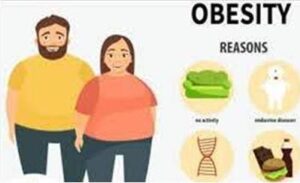550% rise in number of queries relating to obesity since last year reveals Practo Insights. More than 65% of the queries related to obesity came from young adults aged 21-30.


India, November 24, 2020: Practo, an integrated healthcare company, witnessed a staggering increase of 550% in the number of obesity-related queries since last year. This indicates growing awareness about the disease among people and an increase in the knowledge of treatments like bariatric and diets that are related to obesity. The top searched queries give an understanding of how people are aware and concerned of problems like BMI levels, bariatric surgery and the various diets that came into the limelight over the past two years.
According to the Practo Health Insights (Nov 2019 – Oct 2020),
-
Online consultation witnessed a 550% increase from last year in the number of queries for obesity, as compared with 30% the year before
-
70% of all diabetes-related consultation requests came from men
-
66% of the consultations were from the age group of 21-30, followed by people in the bracket of 31-40 (28%), 41-50 (3%), 51-60 (2%), and those aged 60 and above (1%).
-
65% of all the diabetes-related queries came from metro cities, while 35% were from non-metro cities
-
Most of the queries were from Delhi-NCR, Bengaluru, Mumbai, Hyderabad, Kolkata, Pune and Chennai
-
In non-metro cities, most of the queries came from Lucknow, Jaipur, Vadodara, Ahmedabad, Indore, Vijayawada, Nagpur, Guwahati and Ranchi
-
Top searches include obesity symptoms and causes, weight loss, fat loss, diet management, childhood obesity, COVID-19 and obesity and bariatric treatment.
Dr. Alexander Kuruvilla, Chief Healthcare Strategy Officer, Practo, said, “Obesity entails major risk in terms of exposing the patient to life-threatening conditions like cardiovascular diseases, diabetes, musculoskeletal disorders, infertility, and most often than not affects the individual’s mental and physical well-being. Maintaining a balanced diet, being physically active and taking a conscious effort to maintain healthy living will go a long way in the fight against obesity. Timely intervention will help control the condition from becoming unmanageable and posing further threats, especially in cases of childhood obesity. Digital healthcare has over the years helped in creating awareness about obesity-related treatments, including bariatric surgeries and various techniques in terms of diet and nutrition. ”
COVID-19 and obesity was one of the most discussed concerns in the last six months after several reports hinted at a correlation between the two. It was indicated that people with obesity are more likely to have other diseases that are independent risk factors for severe COVID-19, including heart disease, lung disease, and diabetes than normal-weight people. Another topic that gained a lot of attention during this period was childhood obesity, considering the fact that the lockdown has also negatively impacted diet, sleep and physical activity among children with obesity.
Dr. Amit D Goswami, a bariatric surgeon with 22 years of experience, who consults on Practo said, “Obesity is a disease, a multi-system disease actually, as it can involve all the systems of our body. Besides being functionally compromised, there are multiple morbidities that have this common causative factor. Diabetes, hypertension (high blood pressure), daytime somnolence or obstructive sleep apnoea, arthritis, infertility to name a few. Hence, it becomes important for people to check their BMI (Body Mass Index) and decide if they need any medical intervention. Obesity can be controlled with lifestyle modifications and non-surgical means at the initial stage. However, after a certain stage , surgery (bariatric/weight loss surgery) is the only resort. People can consult doctors via telemedicine at the initial stage and decide on the next course of treatment for themselves.”
The World Health Organization states that at least 2.8 million adults die every year due to being being overweight or obese. In addition to that, 44% of diabetes cases, 23% of ischaemic heart diseases and 7-41% of certain instances of cancer are attributable to overweight and obesity. It is interesting to note that India has more numbers of obese people than those who are underweight. Reports predict a considerable rise in the number of overweight and obese people in India by 2040. It is particularly pointed out that there will be a substantial increase in obesity-related problems among rural populace and the elderly.













